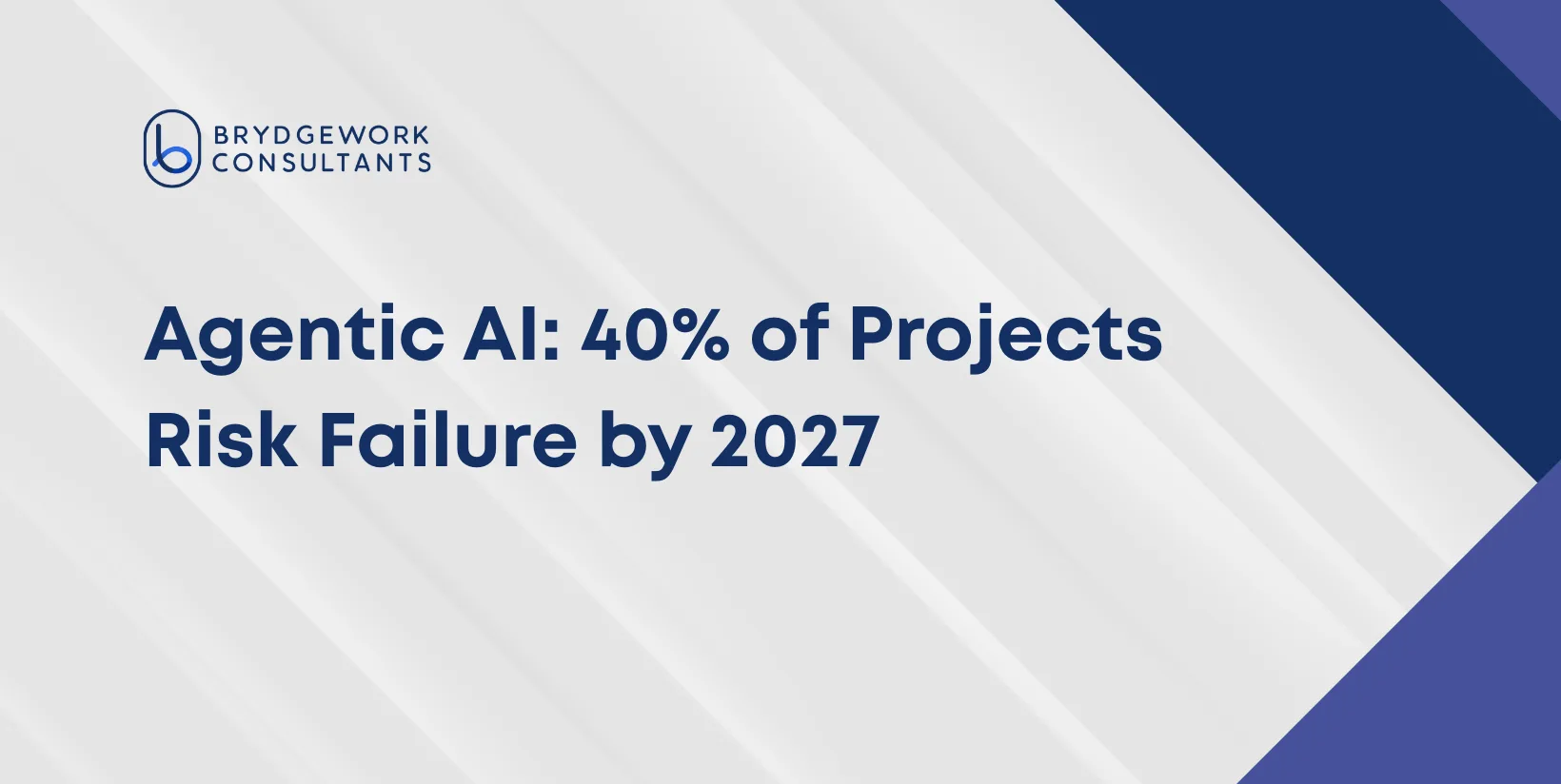
The future of work is increasingly being defined by autonomy, not just for employees, but for the software they use. Agentic AI, or autonomous systems that make decisions and act without constant human input, is gaining traction across industries. Yet, Gartner predicts that over 40% of agentic AI initiatives will be abandoned by 2027 due to high costs, unclear outcomes, and weak risk management. While the promise of AI automation is exciting, the risks are real. Here’s what businesses need to know about agentic AI in 2025 and how to succeed.
Agentic AI is a top buzzword in enterprise tech for 2025. Unlike basic chatbots or simple automation tools, these AI agents operate independently, launching actions and adapting as they learn. However, Anushree Verma, Senior Director Analyst at Gartner, warns that many projects fall short due to overhyped expectations and misaligned applications. A Gartner survey from January 2025, involving over 3,400 professionals, found:
Many companies are hastily labelling existing tools—like robotic process automation (RPA) or virtual assistants—as “agentic AI” without meaningful upgrades. Gartner estimates only ~130 of thousands of claimed solutions truly qualify as autonomous agents. This mislabelling creates market confusion and sets unrealistic expectations.
Implementing agentic AI is also costlier than anticipated. Expenses pile up for:
This isn’t just a technical challenge. It’s a human one.
“The hardest part of AI isn’t the tech. It’s getting people to change how they work.” — Satya Nadella, CEO of Microsoft
Legacy systems in many organizations aren’t ready for autonomous agents, requiring expensive upgrades. As Verma notes, “Many use cases pitched for agentic AI could be solved without it—the tech isn’t mature enough to deliver the expected value.” The result? Pilot projects stall, teams lose faith, and budgets shift elsewhere, dimming the promise of transformation.
Despite short-term hurdles, Gartner is optimistic about agentic AI’s future. By 2028, 15% of routine business decisions will be handled autonomously, up from near zero in 2024. Most enterprise software will integrate AI agents by then. Success lies in targeting high-impact areas like:
For example, in healthcare, agentic AI could autonomously triage patient inquiries, reducing wait times by 30% (e.g., Mayo Clinic’s AI trials). In finance, AI agents can streamline fraud detection, saving millions annually. However, success requires rethinking workflows, blending human oversight with AI-driven decisions—a complex but rewarding shift.
Agentic AI isn’t a passing trend—it’s a transformative force. But its 40% failure rate reflects hype outpacing preparation. To join the 60% who succeed, businesses must act strategically:
For instance, a retailer used agentic AI to automate inventory restocking, cutting costs by 15% in six months. Such wins require commitment, not just enthusiasm.
Agentic AI refers to systems that make decisions and act independently, unlike traditional automation requiring human input.
High costs, unclear ROI, and immature risk management often derail projects, especially when hype drives decisions.
Focus on high-impact use cases, upgrade systems, and train staff to integrate AI effectively.
Agentic AI offers immense potential, but it’s not for trend-chasers. The 40% failure rate is a wake-up call to focus on strategy, not hype. By targeting clear outcomes and building robust systems, businesses can harness autonomous agents to transform operations. Success belongs to the methodical and forward-thinking.
If you’re exploring how agentic AI can transform your business without falling into the 40% failure trap, we can help. Get in touch for a tailored assessment or expert consultation. Let’s make sure your AI initiatives deliver real, measurable results.
January 22, 2025 | Team Brydgework
A lot of times we come across terms like “trademark” (represented by the sign “™”), patents, copyrights, and others. But…
Read More
January 22, 2025 | Team Brydgework
The Union Government declared recently that it is working on the credit guarantee scheme for the MSME sector that was…
Read More
July 16, 2025 | Hemant Kumar
Over the decades, India-Russia relations have been characterized by defence cooperation, Cold War solidarity, and strategic coordination in international affairs.…
Read More